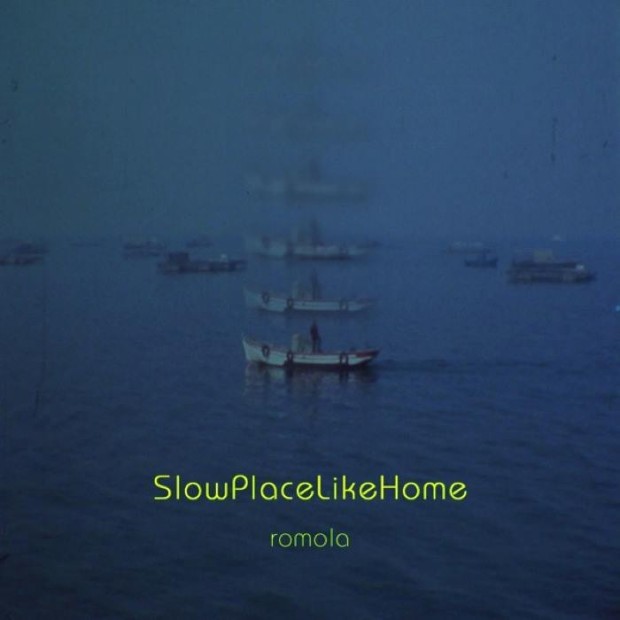Fishing boats come in and out, young men and women in wetsuits ride slices of polyurethane on foamy waves and dogs run after luminous tennis balls on the sandy beach. The coastline has potential for escape but the oppressiveness of being surrounded by the sea can take its toll. The Atlantic North-West’s SlowPlaceLikeHome manage to walk this line between an oppressiveness and freedom.
Album opener ‘Our Rules’ starts off with the synth taking the lead and allowing Mannion to take the song in directions you wouldn’t expect but which don’t feel jarring to the listener. The song ends with the synth used to create the sound of Morse Code being tapped out, this is the countryside meeting the industrial world. ‘She Comes in Colour Stereo’ is the kind of bass-driven, synth-laden pop track that feels hopeful and uplifting but has an underlying sadness that is encapsulated in the lyric, ‘You are never going back’. The middle section of the album feels like where Mannion really stretches his listeners. This is also where the idea of an audio landscape really comes to life and offers some of the more beautiful moments on Romola. Mansion knows when to pick things up and does so on ‘Dear Diary’. Its beach-pop-esque guitar giving the listener something to grab hold of amidst the haunting vocals and synth-sound as the song builds to a crescendo with the addition of horns. Haunted whispering opens ‘Romola (Part 3)’ where Mannion melds the atmospheric with the poppy. ‘Cesare’s Principle’ is the lead single with an accessibility and a lightness – delivered by the children singing – whilst maintaining a sense of the experimental. Album closer ‘Proserpina’ has the feel of industry catching up with the countryside (echoed by its title), the repetitive jangles and splats the sound of industrialised farming and fishing. The track captures the hopefulness technological advances bring to the rural, agrarian side of Ireland whilst remaining aware the centre of power rests in the urbane.
It is clear SPLH are a band that would sound vastly different if they came out of any other location. Mannion has managed to meld nature and technology into an uncomfortable marriage on Romola without losing any of the trademarks of electronic music. There is little space in the music on Romola with layers upon layers of sound building the feeling of industry meeting nature but that isn’t to say this is a difficult listen. The 11-tracks are an audio journey through the countryside with cold, droning, ethereal soundscapes that give the effect of the rolling green hills of Co. Donegal. In the same way Kraftwerk existed to soundtrack a modernising Germany, SPLH exist to give the quiet beauty of the North-West coastline its audible due. James Trotter





